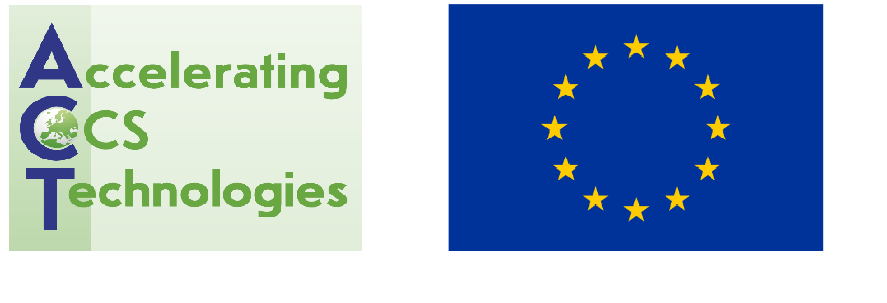About ACT
The ambition of ACT is to facilitate the emergence of CCUS via transnational funding aimed at accelerating and maturing CCUS technology through targeted innovation and research activities.
ACT is an international initiative to facilitate RD&D and innovation within CO2 capture, transport, utilisation and storage (CCUS). Sixteen countries, regions and provinces are working together in ACT with the ambition to fund world class RD&D innovation that can lead to safe and cost effective CCUS technology.
ACT Objectives
ACT is an ERA NET Cofund, which is a tool established by the European Commission under the Horizon 2020 programme for research and innovation.
The idea behind ERA NET Cofunds is that European countries should join forces when it comes to funding RD&D and innovation on subjects of high European interest. ACT is one of many ERA NET Cofunds, but ACT is the only ERA NET Cofund addressing CCS.
ACT started in 2016 with only European members but the objective of ACT has changed from a European to an international perspective. From 2018 ACT is open for countries all over the world with interest in CCUS.
The ACT members are funding agencies from: The Alberta province in Canada, Denmark, France, Germany, Greece, India, Italy, the Netherlands, Norway, the Nordic Region, Romania, Spain, Switzerland, Turkey, UK, and the USA.
The Research Council of Norway (RCN) is coordinating ACT.
ACT national contact points
Questions about ACT can be addressed to the following national contacts:
Canada/Alberta:
Isabella Tarasco (ERA), itarasco@eralberta.ca
Denmark:
Lærke Skov Hansen (ENS/EUDP), lksh@ens.dk
France:
Pascal Bain (ANR), Pascal.Bain@agencerecherche.fr
Germany:
Heiko Gerhauser (PtJ), h.gerhauser@fz-juelich.de
Annette Weiß (PtJ) a.weiss@fz-juelich.de
Greece:
Anna Rosenberg (GSRI), a.rosenberg@gsrt.gr
India:
Neelima Alam (DST), neelima.alam@nic.in
Sanjai Kumar (DST), sanjai.k@gov.in
Italy:
Aldo Covello (MIUR), aldo.covello@miur.it
Maria Bianco (MIUR), maria.bianco@miur.it
The Netherlands:
Gerdi Breembroek (RVO), gerdi.breembroek@rvo.nl
Peter Balemans (RVO), Peter.balemans@rvo.nl
Nordic Energy Research:
Sofia Elamson (NER), sofia.elamson@nordicenergy.org
Norway:
Aage Stangeland (RCN), ast@rcn.no (ACT coordinator)
Kari-Lise Rørvik (Gassnova), klr@gassnova.no
Romania:
Nicoleta Dumitrache (UEFISCDI), nicoleta.dumitrache@uefiscdi.ro
Spain:
Maria Gavira Galocha (AEI), maria.gavira@aei.gob.es
Switzerland:
Stefano Benato, (BFE/DETEC), stefano.benato@bfe.admin.ch
Turkey:
Cagri Yildirim (TUBITAK), cagri.yildirim@tubitak.gov.tr
Hanife Tuzcuoğlu BAŞKANLIK (TUBITAK), hanife.tuzcuoglu@tubitak.gov.tr
United Kingdom:
Shak Choudhury (Department of Energy Security and Net Zero), Shak.Choudhury@energysecurity.gov.uk
United States:
Mark Ackiewicz (US-DOE), mark.ackiewicz@hq.doe.gov
Darin Damiani (US-DOE),darin.damiani@hq.doe.gov
ACT Calls
ACT published the first Call for project proposals in June 2016. Eight new ACT projects were granted funding from ACT and started in autumn 2017 with € 36 M in financial support from ACT. Read more about the projects.
The second ACT Call was published in June 2018 and twelve new ACT projects were kicked off autumn 2019 with a combined financial support from ACT of € 31 M. Read more here.
The ACT3 Call was launched June 2020. There were thirteen successful ACT projects with a total support from ACT of € 29 M which started autumn 2021. Read more here.
The ACT4 Call was launched May 2022 targeting research, development and innovation projects within CCUS. More details available here.
An ACT Open call without fixed dates for submitting proposals and the ambition to attract applications with high industrial involvement was published August 2020 and closed December 2023. Read more here.
ACT will continue its collaboration as a part of the Clean Energy Transition Partnership (CETP). Read more here.
Questions about ACT can be addressed to the ACT coordinator:
Aage Stangeland, The Research Council of Norway, ast@rcn.no
Acknowledgement:
This project has received funding from the European Union’s Horizon 2020 Research and Innovation Programme under grant agreement No 691712.
The reports and all other information on the ACT-website reflect only the authors' view, and the Commission is not responsible for any use that may be made of the information it contains.


